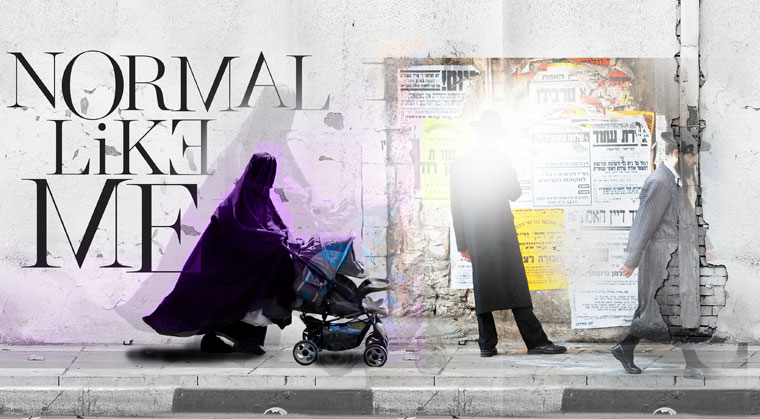Normal Like Me: Chapter 29


T
he clothes he was wearing were soaked with sweat. Back when he left his apartment in Mekor Baruch, he’d packed a change of clothing in a bag. But he’d already changed his clothes the night before, at Faigy’s house, and now both sets of clothes were in similar condition. Unwearable.
“Is there a clothing store here?” That was the first question Itzik asked on the way to the gas station.
The man next to him chuckled. “How about asking if there’s a grocery store?” he suggested.
“Is there a grocery store?”
“No.”
Itzik was stunned into silence for a moment. “So where do you get bread and milk?”
“In Sapir. A few kilometers to the north.”
“It’s not ‘a few kilometers,’ ” Itzik objected. “I just came from there. It’s at least a 15-minute drive.”
“Okay,” the man said, and fell silent. His silence was like the desert, soft. Empty. A light breeze stroked the two of them.
And a sudden realization broke through the barrier in Itzik’s mind: Life in a place without a dry cleaner’s, without a grocery, without any stores at all, could be wonderful. Especially for him.
“Is there a room here that I could rent?” he asked.
An hour later, he was checking into a nearby bed-and-breakfast. His car was waiting in a parking area somewhere. “This is a nature preserve,” Alon, the proprietor, explained. “Cars aren’t allowed on the premises.”
“What if I want to get to Tzukim?” Itzik asked. “I heard there’s a family there that takes in laundry.”
“You can go to the yishuv by car. That’s outside the nature preserve.”
“Ah.”
“There’s a family there that sells clothes out of their house, too. But, um, not the sort of clothes you wear.”
“Is there a beit knesset?”
“No.”
“So what do religious people do?”
“They drive to Sapir. Shacharit at six fifteen.”
Six fifteen. A crushing thought. No more running out at 11 to catch the last minyan at Zichron Moishe.
But when Itzik looked out at the soft sand, at the blazing sky of glittering blue and the jutting cliffs that gave the nearby settlement of Tzukim its name, he felt better.
He visited the family-that-sells-clothing, and came out with some items that would serve as pajamas. The owner of the home-based laundry business promised to deliver Itzik’s change of clothes to the bed-and-breakfast washed, dried, and folded. With that pressing business taken care of, Itzik left his car in the permitted area and set out for the long trek on foot for his lodgings, where he finished off a package of Elite chocolate-coated wafers with hazelnut cream filling (as long as he was getting fat, it might as well be on something good), and then sprawled out on the bed.
He silenced his cell phone, and soon was asleep.
A gentle knocking at the door awakened him. A kid of about 17 held out a package smelling of fresh laundry. Itzik thanked him, changed into the fresh clothes while the boy waited, and sent him back to the laundry with the sweaty clothes he’d been wearing until now.
Just before he mounted his bicycle, the boy remembered the important message he was supposed to deliver. “Alon said to tell you that they also have Minchah prayers at the beit knesset in Sapir. If you want.”
If you want?
(Excerpted from Mishpacha, Issue 695)
Oops! We could not locate your form.



